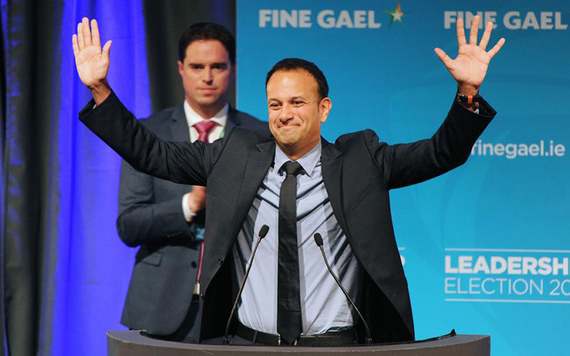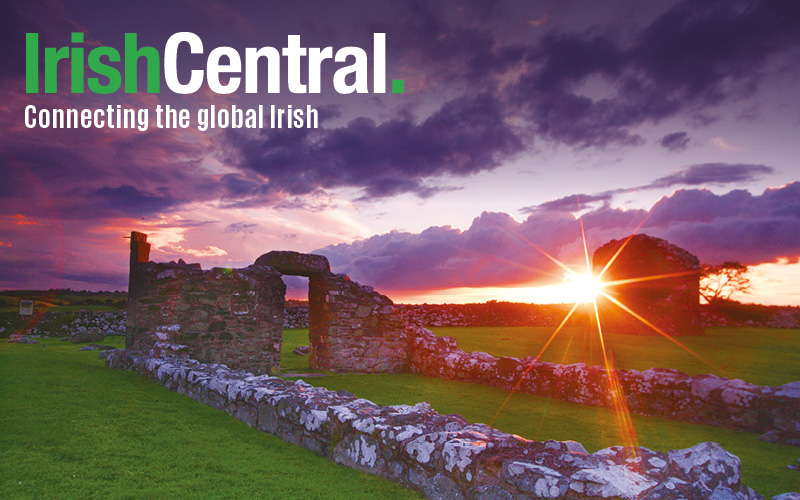When Chinese Premier Zhou Enlai was asked in 1972 about the effect of the French Revolution, Mao’s right hand man mused that it was, “too early to say”. In a similar way it is too soon to say what effect the decision that the British people took to last year to leave the EU will have.
In the immediate aftermath, it dethroned a Prime Minister who only the previous year had won a famous victory. But history can hurry past a man like nothing else when in a rush and news of David Cameron’s resignation was only the second item on the mornings news bulletin on June 24.
His resignation elevated his Home Secretary (Minister in charge of policing, immigration, and national security) to the top job. During the referendum, Theresa May kept a low profile, only occasionally pitching in to help colleagues who desperately wanted Britain to stay in the EU.
Her indifference to the European project, coupled with her long tenure in Government and her reputation as a “bloody difficult woman” when she wanted something catapulted her into the top job.
“May is the Mrs Brown’s Boys prime minister — a premier who satisfies the masses but whose popularity baffles the intellectuals,” one journalist opined and for nearly a whole year that was true.
Read more: British admit Brexit a complete disaster says top Irish negotiator

British Prime Minister Theresa May.
Believing polls that suggested a landslide victory was at hand against the British Labour party - led, many commentators claimed, by an inept socialist - May called an election that took place at the start of this month but lost a handful of seats. Now she clings to power only with the help of Northern Ireland’s Democratic Unionist Party founded by Ian Paisley.
In Dublin, the result to leave the EU was greeted with almost universal wringing of hands. Ireland exports $17 billions worth of goods to the United Kingdom every year - some 36% of total trade. Meaning any barriers to trade will cause significant problems for the export sector of the Irish economy.
Ireland’s new Taoiseach (Prime Minister) Leo Varadkar dangled during his leadership campaign last month the possibility that Northern Ireland be given special status within the EU and allowed to stay within the single market (a framework that mandates common standards for goods across the EU and certain other countries like Norway).
Read more: What Theresa May as British PM will mean for Brexit and Ireland

Taoiseach Leo Varadkar.
However, despite Northern Ireland’s comfortable vote of 56% to remain in the EU, such a deal is highly unlikely. London dismissed a call for a similar deal for Scotland (which also voted to stay in) as likely to call "significant disruption" in internal UK trade. The Spanish Government has also expressed opposition to the proposal.
Sinn Féin has not stepped away from their call for “special designated status” for Northern Ireland within the EU but unionists in the province will bitterly oppose any such deal.
The Irish Government has, however, outlined that it will veto any deal if it does allow for a border between north and south without passport checks and it must respect the Good Friday Agreement.
The Department of Foreign Affairs has been on maneuvers ever since June and the EU’s negotiating team has promised to put Irish issues at the top of their agenda.
In Scotland, First Minister Nicola Sturgeon declared within hours of the Brexit vote that a second vote on Scottish independence was now “highly likely” given that 62% of Scots had opted to stay in the EU.
In March, the Scottish Parliament formally asked the British Parliament to give it the authority to hold such a vote. Such a move, polls suggested, was opposed by the large majority of Scots - even many who had voted for independence in 2014 - and Theresa May shrugged off the request with the focus group tested soundbite that, “Now is not the time.”
Although May’s election gamble failed in England and Wales, where the Conservative Party gained some seats but lost a few more, in Scotland the election galvanised the pro-Union majority who delivered a stinging rebuke to Sturgeon’s Scottish National Party.
The SNP lost 21 seats - most notably its Deputy Leader Angus Robertson and former First Minister Alex Salmond. Sturgeon conceded that her referendum plan was “undoubtedly… a factor in this election result” and has remained tight lipped on the issue since when pressed by journalists and opposition politicians.
One year on from the big day, negotiations in Brussels are still in the embryonic stage; on Monday Brexit Minister David Davis and the EU’s chief negotiator, Michel Barnier, have agreed on a timetable for talks.
Barnier quoted one of the EU’s founding fathers, Jean Monet, who said, "What is important is not to be optimistic, nor pessimistic, but to be determined."
Davis quoted Churchill, who once mused, "The pessimist sees difficulty in every opportunity. The optimist sees the opportunity in every difficulty."
First, will be the rights of EU citizens living in Britain and those Britons living in the EU who will lose their automatic right to residency in those countries after Britain leaves in 2019.
Theresa May Just Offered EU Leaders A Plan To Let EU Citizens Stay In The UK After Brexit https://t.co/ggBarHWoL5 via @albertonardelli
— Kassy Cho (@kassyapple) June 23, 2017
Yesterday, May made what she called a “fair and serious offer”; all EU citizens who have lived in Britain for more than five years will receive permanent residency and the right to use public services. Those who have yet to live five years in the UK, and those who arrive before Britain formally leaves, will be given the chance to stay on and receive permanent residency after five years.
Irish people will likely be unaffected as both British and Irish Governments have intimated that the Common Travel Area established in 1923 will remain unchanged - meaning Irish and British people will retain the right to live and work in each others’ countries.
The question of Britain’s exit bill is likely to be one of the most contentious of all issues and some have speculated it could be as high as $112 billion.
The amount is presented as representing the sums for projects Britain already committed to paying for prior to Brexit and pension liabilities for British staff for the EU.
If the British negotiators manage to reduce the sum substantially then it will mean cuts to the EU’s budget or increases in payment from members states - not something Dublin or any other European Government would relish.
The issue of the Irish border is also to be considered a priority and the EU has called for "flexible and imaginative solutions". As Britain says it wants to leave the customs union then what happens to goods when the travels across from Donegal to Derry is anyone’s guess.
Optimistically, negotiators hope all these issues will be sorted by October, then the talks can turn to trade with a conclusion to be reached by fall 2019. All of which leaves six months for the deal to be ratified by the parliaments of the EU and member states.
Peter Schrank on the beginning of Brexit negotiations with the EU – political cartoon gallery in Putney pic.twitter.com/uibxFRz7Mw
— Political Cartoon (@Cartoon4sale) June 19, 2017
Some give the talks only an even chance of agreeing a final deal, without which Britain would leave and revert to trading with the EU on World Trade Organization tariffs - Dublin’s nightmare scenario.
Certainly most commentators expect a walkout at some point.
“In Brussels there’s a lot of brinkmanship, it’s a tool for people for negotiating as much as issuing a document or having a meeting,” a BBC journalist characterized EU negotiations.
“A quiet summer, hot autumn with a walkout in early October,” the Times of London’s Brussels correspondent predicted to the BBC.
Or, as Britain’s Brexiteers predict, it could all be grand.
Most would conclude, however, like Premier Zhou Enlai that it’s “too early to say”.




Comments